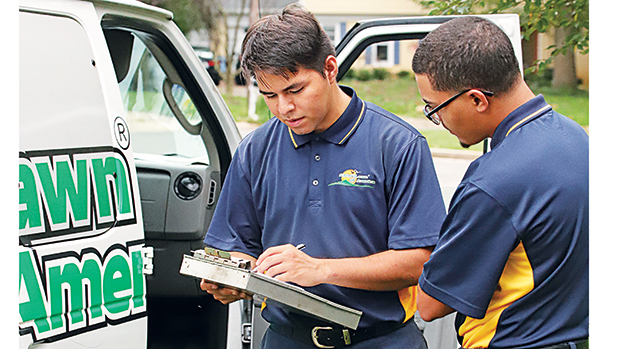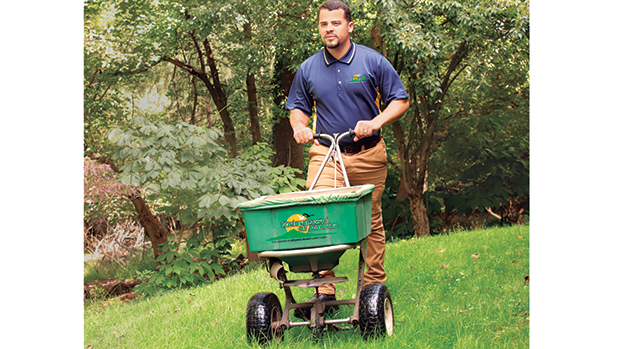
Growing a business is difficult no matter the industry but trying to expand into organic lawn care services poses its own hurdles. Two owners share what it takes to be successful with organic lawn care.
Education is key
People understand mowing the grass or trimming shrubs, but there’s a learning curve when lawn care operators (LCOs) present organic lawn care services, says Matt Maurer, owner of PureLawn Organic Lawncare.
Covering the Cincinnati and Dayton, OH, areas, PureLawn expects to hit $1 million in annual revenue this year. Its customers are 95 percent residential and 5 percent commercial. PureLawn offers two programs: one that’s completely organic and a bridge program that includes spot-treating weeds. The goal of the bridge program is to move the customer to the 100-percent organic program eventually.
Pet owners, parents and others concerned about lawn chemicals are the target market. “Communicating with customers is huge when you’re trying to sell organic lawn care,” Maurer says. Part of that education includes managing expectations.
For example, if the customer uses their completely organic program, there will still be some weeds. To find which organic products will work best, Maurer suggests doing local soil tests. “We’ve done enough where we see a common pattern,” Maurer says. “We developed our fertility program off of those deficiencies. Look for products that are going to fill that need.”

Starting from scratch
The company, a franchisor, has since grown to nearly $82 million in annual revenue and is in 26 states with more than 115,000 customers. With its home office in Frederick, Md., NaturaLawn focuses primarily on residential customers, serving about 97 percent residential and 3 percent commercial. It offers an organic alternative and an organic-based program, which is a term the company coined to market its initial offerings.
Just like with synthetic products, not all organic materials are the same, Catron says. Owners should be aware that some organics are more difficult to handle, and there also will be operational changes they’ll need to adjust to.
The bottom line, he says, is that LCOs should educate themselves about what they are getting into. “Because organic materials were and still are relatively more expensive than traditional synthetics, it also meant we had to ensure customer cancellations and service calls were significantly below the industry averages so that costs could be kept in line,” Catron says. “Never apologize for the price you charge, but help people solve their lawn care problems by delivering exceptional service, and sales will come.”

